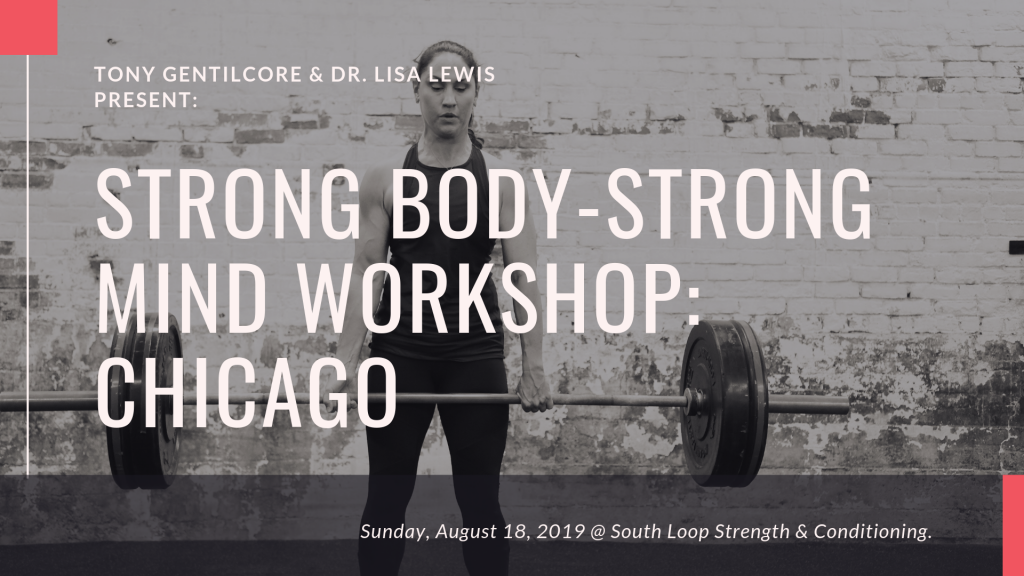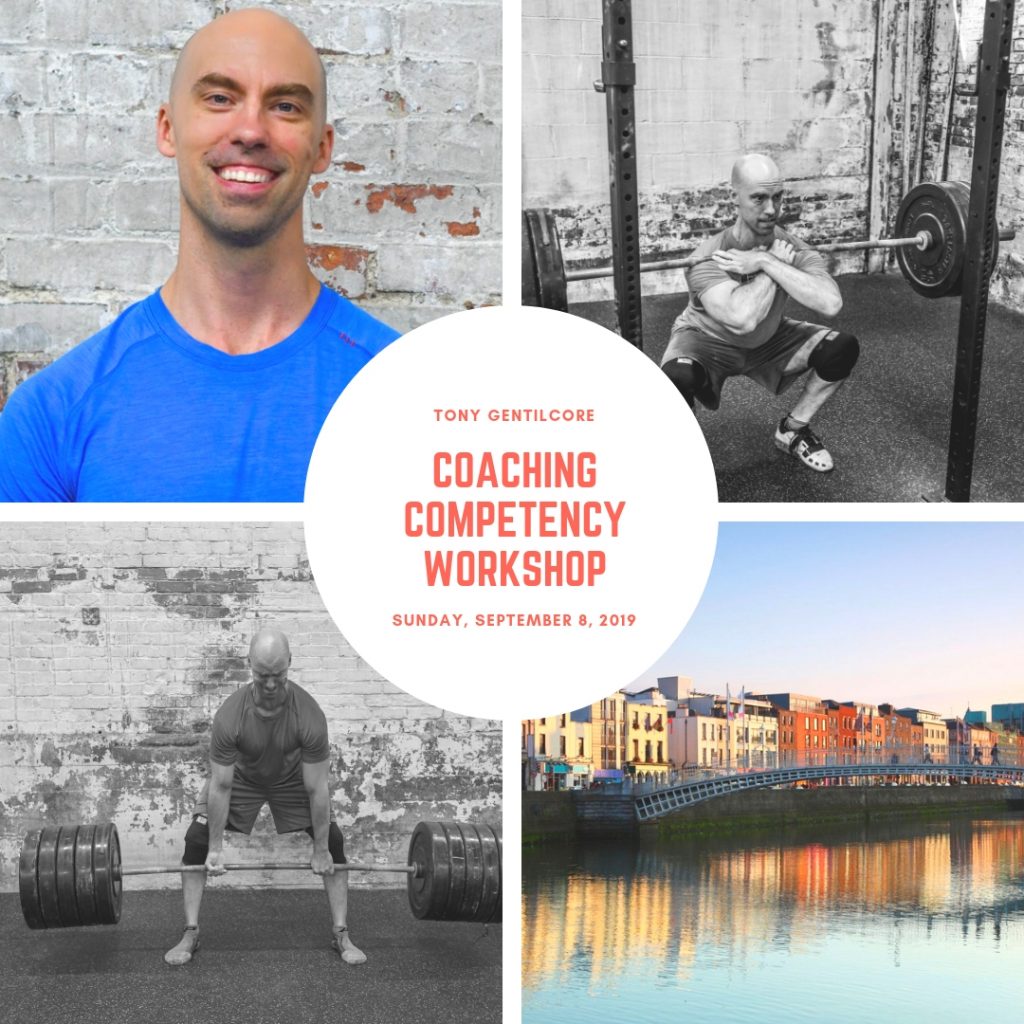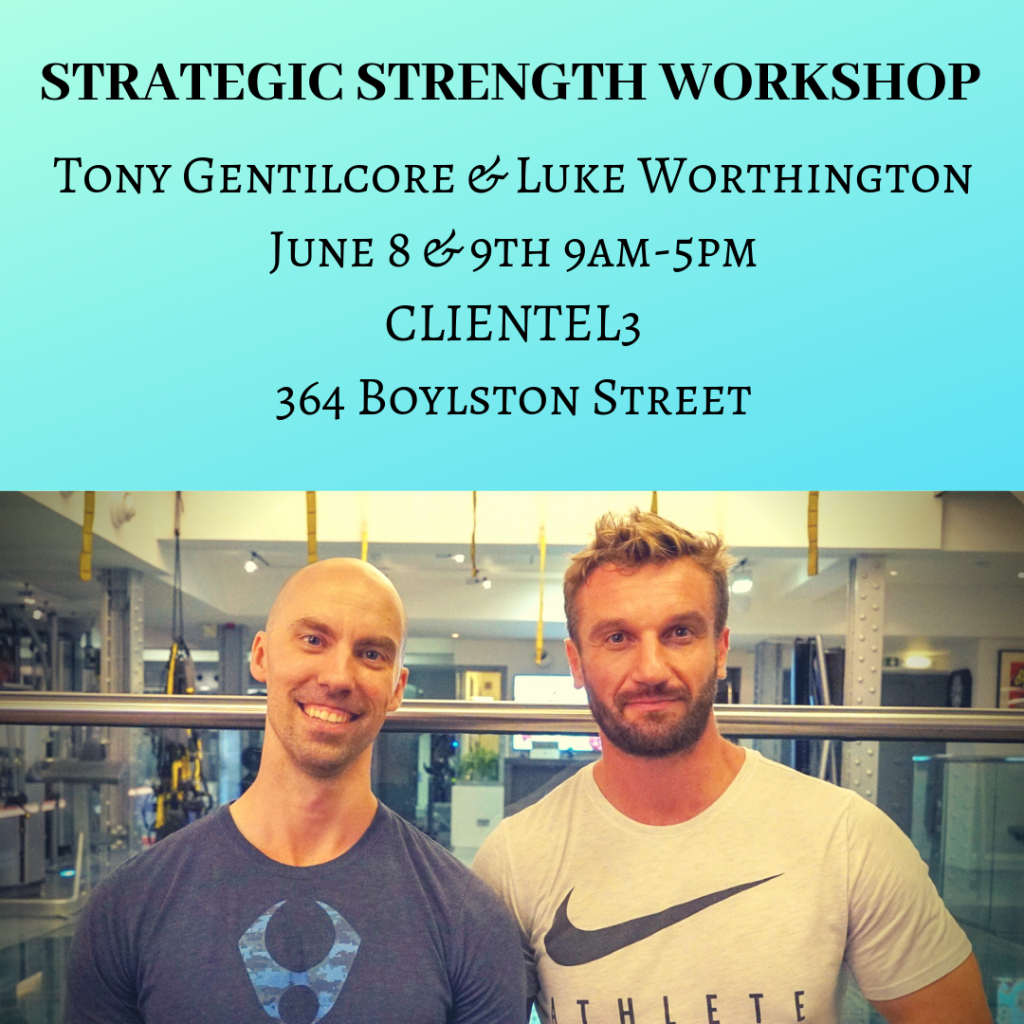I feel like a bag of dicks today.
Well, not that bad considering the 2o hour total flight time (in addition to a four hour layover in LAX) Lisa and I endured yesterday making our way back to Boston from Australia.
I don’t know, maybe I feel more like a bag of soggy potatoes? Either way, it’s not good, and I have zero room to complain given I’m not coaching today and Lisa had to go in because she has full day of clients lined up at her private practice.1
To that end, given my brain feels like mush at the moment and I’m still trying to get my bearings back from being across the other side of the world for the past two weeks, I wanted to take today as an opportunity to remind people of where I’ll be presenting next.
You know, because it’s all about me, me, me, ME!

Strong Body-Strong Mind: Chicago (August 2019)
Full Disclosure: This will be the only date in 2019 that Dr. Lisa Lewis and I will be presenting this workshop.

Go HERE to register.
This workshop is designed for fitness professionals – personal trainers, strength & conditioning coaches, physical therapists, etc – to provide both physical & psychological tools to help build your brand, business, and rapport with clients.
Dr. Lewis and I cover a lot of material:
- How to increase competency and motivation with your clients.
- An overview of both upper and lower extremity assessment to create increased “buy in.”
- How to set professional & personal boundaries with clients.
- Troubleshooting common lifts such as squats & deadlifts to best fit the needs, ability level, and anatomy of clients.
- And more…
The Early Bird rate for this workshop is set to expire this weekend (7/29) so if you want to save yourself $50 I’d encourage you to sign up ASAP.2
CEUs will be available.
For more information – including full itinerary and to register – you can go HERE.
Coaching Competency – Dublin, Ireland (September 2019)

Register HERE
So what happens when a room full of Irish(w0)men find out I’m not much of a drinker?…;o)
Whether you get paid to tell people to lift heavy things or you just like to lift heavy things yourself, in this 1-day workshop you’ll get the opportunity to listen to me talk about my how I approach assessment and gain a better understanding of how I “match” the exercises I prescribe to better fit the needs, ability level, and more importantly, the anatomy of each individual I work work.
In short, this workshop looks at the “umbrella theme” of my coaching philosophy.
For more information – including itinerary and how to register – go HERE.
Strategic Strength Workshop: London, UK (September 2019)

Register HERE
Luke Worthington and I have presented this workshop twice. Once in London last year and again this past June in Boston.
We’re bringing it back to London this Fall, my most favorite place in the world.
This two-day workshop is designed to arm fitness professionals with all the tools they’ll need to hone their assessment skills and to make their clients/athletes a bunch of bonafide, resilient, strength training Terminators.
Combined Luke and I have ~40 years of coaching experience (or one Dan John) and bring different perspectives and skill-sets to the table; Luke peels back the onion on PRI (Postural Restoration Institute) concepts and assessment, while I go into detail breaking down movement and how to better “match” the exercises we prescribe to our clients.
For more information – including itinerary and how to register – you can go HERE.





